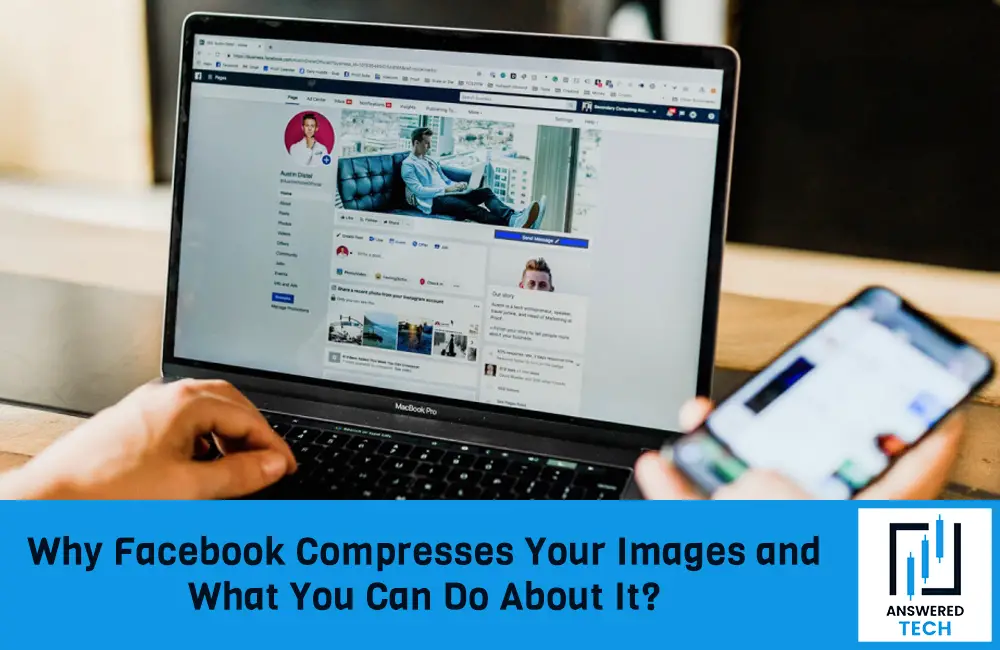Facebook is one of the largest social media platforms with billions of monthly users. One of the primary features that made Facebook stand out was the ability to add images and share memories with the people on the friend list.
However, despite being one of the most popular features, this is also one of those features that have left people questioning the quality of content uploaded on the platform. Facebook compresses the images that you upload, there’s no two ways about it.
Compression of the images on Facebook leads to a reduction in image quality, which is the last thing anyone wants to experience. That said, there are reasons why Facebook compresses its users’ photos and some ways you can navigate through the issue.
This article will explore everything that you potentially need to know about Facebook’s photo compression issue and how you can fix the error as well.
Reasons Why Facebook Compress the Images

Before we discuss the potential reasons, let us first understand what compression is. Compression is the process of reducing the size of a file while maintaining its overall quality.
Now, if we had to explain in simpler terms, compression happens by removing certain parts of the data that are indispensable to the file’s content. Not just images, compression can happen with videos, and audio files as well.
With that said, the following are some of the reasons why Facebook compresses the photos that you upload:
1. Save space on its servers
For those who aren’t aware, Facebook has 2.8 billion active monthly users. And, among those billion users, several of them are regularly uploading images, videos, and audio files to their respective accounts.
With so many users uploading images and other content, Facebook needs to do everything in its capacity to ensure its servers are working efficiently. Compressing the photos is one way Facebook ensures that the platform can store all of these files efficiently.
By compressing the images and other media uploads, Facebook can reduce the amount of space it needs to store these files, thereby keeping its servers working efficiently. What this does is reduce the platform’s overall storage costs.
2. Reduce processing time
Another reason why Facebook compresses the quality of the images that you upload is to ensure that the images load faster when someone opens their Facebook app.
Larger files take longer to load, which can be quite frustrating for the other users, affecting their user experience on the platform. Compressing the images on their platform thus allows Facebook to keep their users happy.
Overall, it reduces the loading time for each image and video. This, in turn, makes the whole user experience seamless and more enjoyable for the user.
So, now that you know why Facebook decompresses the images, let us understand some of the downsides to compression:
- The most probable issue with image compression is the reduction in the quality of the image. When a photo is compressed, some of the data is removed, which leads to a loss in the detail and color, and even the resolution of the image. The degree of compression varies from one image to the other and depends on the file format.
- The second issue that happens when a photo is compressed on Facebook is that it affects the ability to edit the images. For example, when it is compressed, some of the data is lost, which can make it difficult for the users to edit the sizing or the brightness later.
So, the issues are prominent. The next question that comes up in the equation is, “How do you fix the issue?”
Ways to Prevent Facebook from Compressing Your Images

Nobody wants to stay stuck with poor quality on Facebook. So, is there any way to work around the compression issue on Facebook?
Fair warning, there is no way to entirely prevent Facebook from compressing your images. However, there are some ways you can reduce the aftermath to an extent. We have sorted out a few for you to look through:
1. Resize the images
Before you upload your images on Facebook, resize them. This might sound counterintuitive but it works. The reason compression occurs is because Facebook is trying to reduce the file size. So, if you can do it manually by resizing them, it is already going to take up less space on Facebook’s servers. This means that there are fewer chances of it getting compressed or distorted.
2. Use different file format
Facebook is versatile in the way that it supports a variety of file formats, including JPEG, PNG, BMP, GIF, etc. Some of the file formats are better to upload on Facebook while some aren’t. You’d have to experiment and see which formats work the best and are the least distorted after uploading.
3. Adjust photo settings
If you aren’t a frequent Facebook user, you might not know this but Facebook allows you to manually choose the resolution of the image before uploading. What you can do is select the highest resolution right there. You can change your settings to allow uploads of higher resolution and quality. It should ensure that the uploads you are making aren’t compressed or distorted.
4. Third-party hosting service
This isn’t conducive because they aren’t integrated with Facebook, which means that the images you upload on these platforms won’t show up in your Facebook feed. However, if you want to save your images somewhere without compressing the quality, there are a few third-party hosting services that you can check out yourself.
If we had to explain in short, the primary reason Facebook compresses your images is to save space on their servers.
Conclusion
That pretty much concludes everything we had to discuss about Facebook and its issue with compressing images and other media uploads. It is quite a fatal flaw of the social media platform but, in the long run, you need to understand that the main reason behind it is to enhance every user’s overall user experience on the platform.


